The internet is no stranger to horror stories, but few have left such a lasting impact as the "Russian Sleep Experiment." The story, which gained massive popularity in the late 2000s, is a gruesome tale of a Soviet-era experiment gone wrong. While many know it as a chilling piece of creepypasta, what’s less known is how this fabricated story drew inspiration from real historical events, tapping into collective fears and traumas to become an unforgettable piece of internet horror.
The Story: A Haunting Premise
For those unfamiliar, the "Russian Sleep Experiment" describes a fictional experiment conducted in the late 1940s by Soviet researchers. The story alleges that five political prisoners were subjected to a sleep-inhibiting gas, keeping them awake for 15 days straight. As the days passed, the prisoners reportedly descended into madness, exhibiting extreme paranoia, mutilating themselves, and eventually dying or transforming into something inhuman.
Despite being a work of fiction, the story’s disturbing details and the plausibility of such experiments in a totalitarian regime made it an instant hit. It spread rapidly across forums, Reddit threads, and horror websites, embedding itself in internet folklore.
Real-World Inspirations: The Echoes of History
While the "Russian Sleep Experiment" is purely fictional, its power comes from how it taps into very real historical and psychological fears. During the 20th century, especially under totalitarian regimes like the Soviet Union and Nazi Germany, horrific human experiments were conducted in the name of science and ideology.
One clear historical parallel is the work of Dr. Josef Mengele, the infamous Nazi doctor who conducted grotesque experiments on prisoners in Auschwitz during World War II. Mengele’s experiments, which included attempts to alter eye color by injecting chemicals into children’s eyes and sewing twins together to create conjoined twins, were conducted without any regard for the subjects' well-being. These atrocities highlighted the terrifying potential for human cruelty under the guise of scientific advancement.
In the Soviet Union, there were also rumors and reports of unethical psychological and medical experiments, though much of this remains shrouded in secrecy. The most notorious was the Soviet Union's use of psychiatric institutions to detain and "treat" political dissidents. These individuals were often subjected to forced medication and electroconvulsive therapy, which, in some cases, was used as a form of torture.
Another source of inspiration could be the real-world experiments conducted by American and Soviet scientists during the Cold War, particularly in the realm of sleep deprivation. In the 1950s and 60s, both superpowers were interested in the potential military applications of sleep deprivation, leading to some genuinely disturbing research. For example, in the infamous MKUltra program, the CIA conducted mind-control experiments, some of which involved extreme sleep deprivation combined with hallucinogenic drugs.
The Influence of the Story: A Legacy of Internet Horror
The "Russian Sleep Experiment" story doesn’t just stand as a creepy internet tale; it has influenced the horror genre significantly, both online and offline. After its initial explosion of popularity, the story was adapted into various forms, including short films, comic strips, and even a full-length novel. The idea of sleep deprivation as a gateway to madness has since become a recurring theme in horror media, underscoring the story’s lasting influence.
But perhaps more interestingly, the story has become something of a case study in how internet horror evolves. As a creepypasta, it sits alongside tales like "Slender Man" and "Jeff the Killer" as part of a broader genre of user-generated horror stories that have taken on a life of their own. These stories, often presented as real accounts, play on the boundaries between fiction and reality, blurring lines in ways that make them all the more unsettling.
The Real-World Impact: Misinformation and Myths
The viral spread of the "Russian Sleep Experiment" has also had some unintended consequences. Despite the story’s fictional origins, there are people who believe it to be based on a real event. This belief is likely fueled by the story’s setting in a time and place where such horrors were not entirely out of the realm of possibility. The blending of fact and fiction in internet horror stories like this one highlights a broader issue of misinformation online, where fabricated stories can easily be mistaken for truth.
Moreover, the story has inspired a kind of dark fascination with real historical events, sometimes leading to the spread of exaggerated or misleading information about Soviet-era experiments. While it’s important to remember that the "Russian Sleep Experiment" is not real, the fears it taps into are deeply rooted in historical realities.
Conclusion: The Dark Power of Internet Horror
The "Russian Sleep Experiment" remains one of the most enduring pieces of internet horror, not just because of its gruesome content, but because it resonates with real historical fears. While the story itself is a work of fiction, its impact is very real, influencing both the horror genre and the way we think about the darker chapters of human history. In the end, it serves as a potent reminder of how easily the line between fiction and reality can blur in the digital age.

